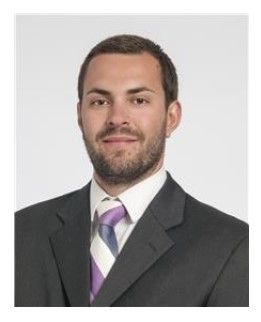Wearable Technology, Valuable Data
by Richard H. Cartabuke, MD Internal Medicine and Geriatrics, Cleveland Clinic Medical Director, Healthnetwork Foundation

Wearable Technology, Valuable Data
When a patient wants to speak with me about diet changes, our conversation might traditionally go something like this:
Me: How are you eating these days?
Patient: Generally healthy.
Me: Okay, take me through what you ate yesterday.
Patient: Um… Eggs for breakfast. No wait, a bagel.
Sound familiar? Our memories are very unreliable for things like this. I can barely remember what I ate for lunch an hour ago, let alone my entire menu yesterday! We also face a recency bias, meaning we might report “generally healthy” based on how we’ve been eating for the last week or two. But what about the last month? Six months? As your physician, that’s what I would want to know about. So then patient might try keeping a food journal, but for most people that is tedious and doesn’t last long. The result: It’s nearly impossible to get an objective report on eating habits.
But now, thanks to technology, patients and I no longer have to rely on our faulty memories and best guesses. There are wearable devices that gather real-time data on eating habits and how it affects blood sugar. No more guessing. Now we know—with objective data—and we can get to work fixing any issues.
Besides food, wearable technology is giving patients and their physicians valuable data in other important areas of health, such as sleep and heart health. My patients with atrial fibrillation can check their heartbeat and rhythm using an app on their Apple Watch, and actually see how many times they were out of rhythm (because of course you don’t always feel that or notice it when it happens throughout the course of a day). These kind of apps give me real, objective data to help me make recommendations for care or medication adjustments—and that gives both the patient and me more confidence.
What we’re starting to see is how this kind of technology can preempt disease processes. For example, there’s now a headache app that takes into account of variety of factors—such as how well you slept, what the weather is like, what your stress level is—and predict the likelihood of you having a headache or migraine that day. So if you have a high chance of a headache, you can be sure to bring your medication with you and plan your schedule accordingly.
As always with technology, there are downsides. You can obsess about statistics or freak out about fluctuations over a day or week that might be perfectly reasonable. But as long as we can resist the trap of information overload, I see this as a positive direction for the future of medicine. More and more we’ll use technology get real-time information to bring to our doctors, where they can make lifestyle or medication adjustments based on objective data.
